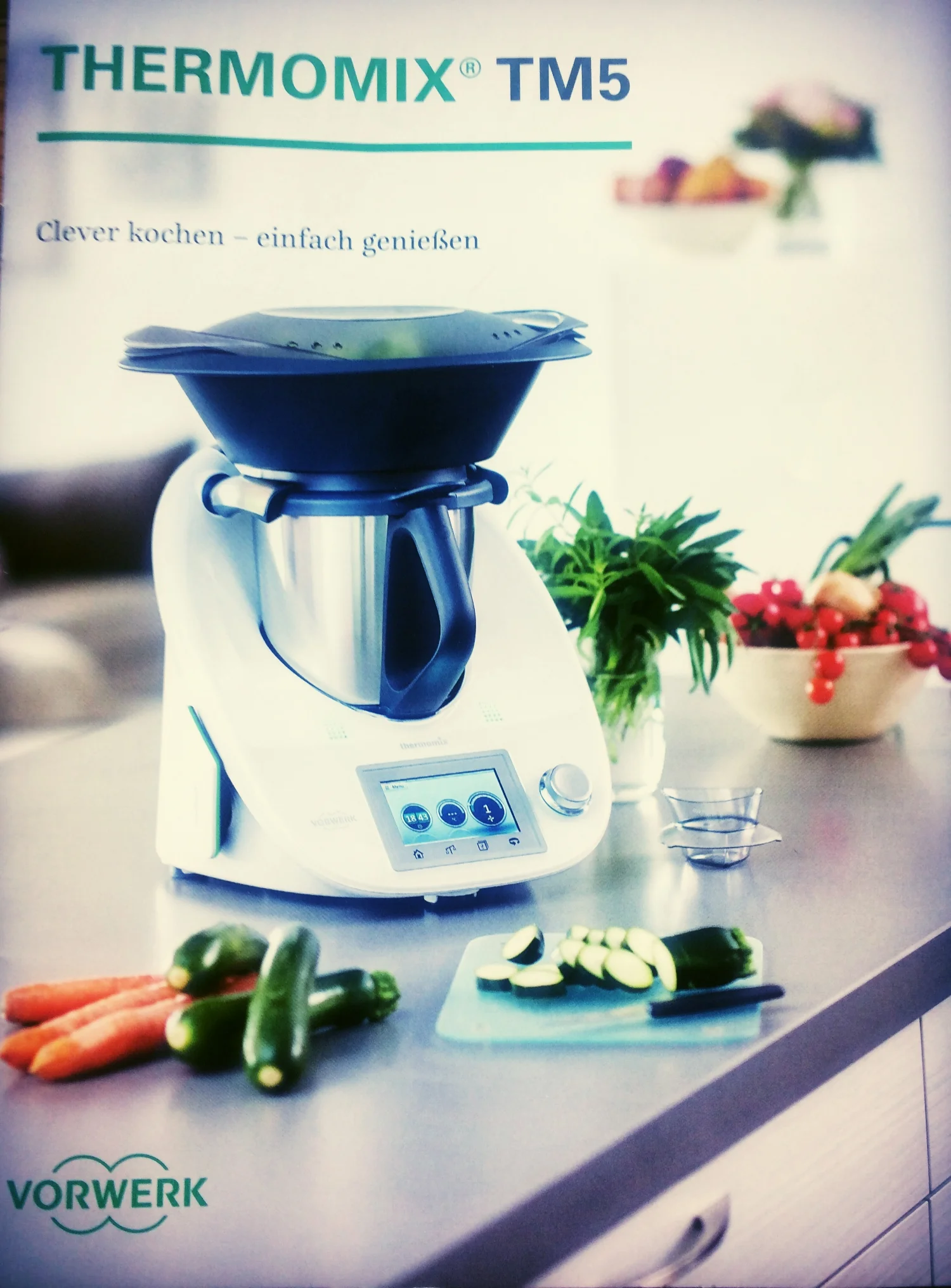Thermomix: Our Shiny Kitchen Overlord
Every culture has their rites of passage, whether that be young Maasai warriors hunting a lion or young Geordies entering the terrifying hell-scape of the Bigg Market to drink ten pints and eat a Chicken Parmo. Germany also has important moments that signify life’s many changes and recently my wife went through an important marker that suggests she is truly becoming a German Hausfrau. Last week, she was invited to a very special event, her first ever Thermomix sales party hosted by one of her colleagues.
Those outside mainland Europe may well be unfamiliar with the Thermomix, which comes as no surprise considering it can only be purchased online or via a sales party such as the one my wife attended. The Thermomix is essentially the ultimate in modern kitchen aids, all touchscreens and silver dials. According to the marketing, it is “the future of cooking” and “provides an exciting way to improve your lifestyle everyday” which goes some way to explaining why it costs €1199.
For just under two grand, the owner of the Thermomix can chop, cook and steam to their hearts content and all under the watchful eye of the onboard computer which guides its user through every step via a small touchscreen, turning an imbecilic cook such as myself into Heston Blumenthal in around 40 minutes. What’s more, should you run out of ideas, this kitchen R2-D2 can download more, for a price, and keep you cooking up a storm until you either run out energy or the debt collectors come and take it away.
As a man who has had more than one kitchen gadget thrust upon him by relatives and has seen many toasted sandwich makers waste away in cupboards, I am always sceptical when a company suggests they have the next kitchen marvel. Many a drunken night, I have come home and switched on the television to see never ending infomercials with plastic looking people trying to sell me some doodah that can chop an egg in 0.01 seconds, while singing Queens Greatest Hits. I have not yet succumbed to my inebriated desires to purchase such gadgets, although on more than one occasion I have found myself on hold waiting in line to give someone my credit card details.
The last resting place of every kitchen gadget.
Luckily for Thermomix and its parent company Vorwerk, I am not exactly their target market. Despite my misgivings about forking out two thousand simoleons, many people across Germany, France, Australia and Canada have no problem shelling out large sums, with sales of Thermomix jumping by 50% in 2015. To put that another way, every 25 seconds someone in the world was buying a Thermomix. That is a lot of steamed vegetables.
What is more surprising is that, by all accounts, it actually works. I have yet to meet an owner that has said it does not do what the sales material says it can. “It’s so efficient” they tell me, “I save so much time” they continue, as if reading directly from the slick catalogue that is currently taking up space on my coffee table. It might be crass of me to suggest that Germans finding a product’s efficiency to be a major selling point, given that efficiency is the number one word used by non-Germans to describe our Teutonic cousins, but that is what I have been told.
Efficient it may be, but at what cost? Surely cooking is more than just a means to an end, otherwise we would all be currently eating gruel, or some kind of nutritional paste or worst still, a Pot Noodle. There is something weirdly soulless about the Thermomix, like the Konami cheat code for cooking, that allows the unskilled amateur to suddenly become an artisan super chef by simply downloading a recipe and pressing some buttons. I for one do not feel I have properly cooked anything until I have near chopped off a finger, cried mournful onion tears and then hideously cremated some essential ingredient.
Furthermore, in a world where we are continually being haunted by the rise of the “Internet of Things” and full automation stealing our jobs, how long before the Thermomix is just cooking without any human input whatsoever. How long before I come home to find the Thermomix has rallied all of my other appliances to its nefarious cause and I now have a full on digital insurrection on my hands. Some people my look at its clean white exterior and silver knobs and think of the future of cooking, I see it and wonder if I am willingly inviting a robot Che Guevara into my home. Mondays are shitty enough as it is without my home being commandeered by an uppity blender.
My terrifying dystopian future aside, Thermomix has not always had such overwhelming praise from users. Thermomix Australia has faced a backlash after products apparently blew up mid mix, while there has been a court case which questions their sales activities. There have even been accusations by disgruntled former employees that Thermomix is more akin to a cult, albeit one with incredibly tasty Hors d'oeuvres.
Thermomix may have critics, but there is no denying the popularity of their products in Germany. It still remains much sort after, with prices still in the high hundreds on ebay. It is a brand that people know and more importantly trust, which to some extent comes from the fact that Vorwerk have managed to marry the German love of cooking to the German desire for quality engineering. Yet, despite the marketing, I doubt I will ever see one gracing my kitchen worktop. After the dust settled from her Thermomix sales party, my wife pointed out that it would really take all the fun out of cooking. I can’t say I wasn’t relieved, not because I was worried about the price (I was), but because when the machines do finally rise up, at least all I will have to worry about is a couple of angry laptops and a disgruntled smartphone.








